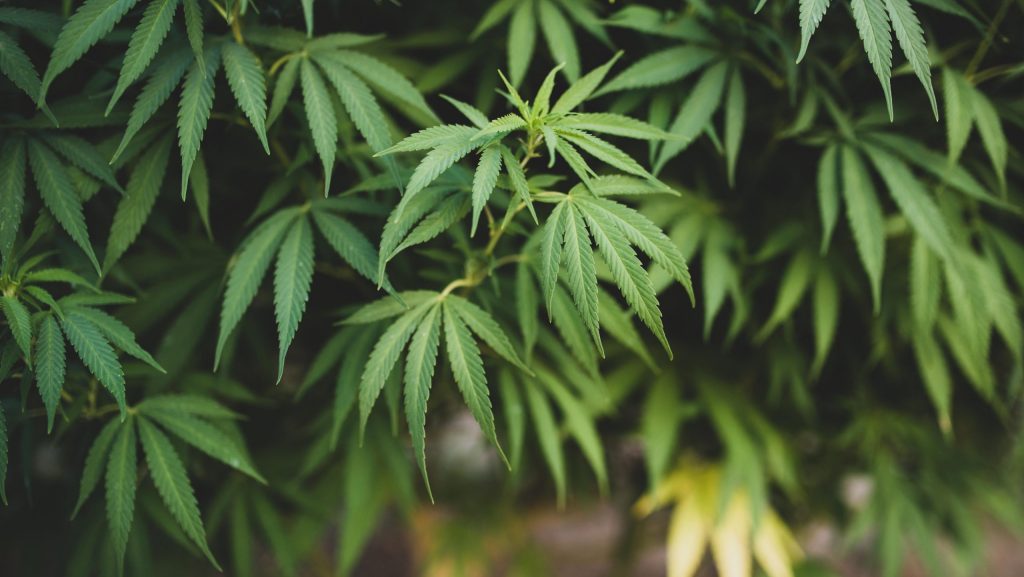Why Michigan’s Recreational Marijuana Industry Isn’t Helping Those Harmed by Drug Policies
The pot market is growing quickly in Michigan. But giving a boost to people disproportionately affected by the War on Drugs remains elusive.

Michigan is still grappling with how to implement its new legal recreational marijuana market. And it turns out during the pandemic, the market is booming.
“There’s kind of a catch-22 with the laws.” — Gus Burns, MLive.
As Michigan’s recreational marijuana market expands, many communities are trying to build social equity measures into their licensing process. The goal is to give people who have been disproportionately affected by harmful anti-drug laws more opportunities to open retail shops.
In order to unpack the equity piece of the new industry, MichMash hosts Cheyna Roth and Jake Neher speak with MLive’s Gus Burns, who has been covering marijuana in Michigan for years.
Subscribe to MichMash
A lot of areas in the state are trying to figure out how to make the marijuana market available for everyone, but in Detroit specifically, there’s a lot of conversation around this social equity piece.
“There’s basically been a prohibition against marijuana for so long and it negatively impacted a lot of lives with the law enforcement,” said Burns. “And basically, people are, now that it’s legal and turned into a business, they’re trying to get people who were negatively affected an opportunity to benefit from that,” he said.
So far, attempts to fix social inequity in the marijuana business have not been that successful, Burns said. The state’s Marijuana Regulatory Agency has a Social Equity Program that offers discount application fees and discount licensing fees, which can be quite a bit of money for some of the bigger licenses, but Burns said the people negatively affected by past marijuana policy still haven’t gotten through the qualification process yet.
“There’s kind of a catch-22 with the laws,” said Burns. “Right now, you’ve got to have a medical business license before you can get a recreational business license.”
“The rules in the medical license prohibit anyone with drug distribution charges,” he said. “Those are the people they’re actually targeting with the program, so it kind of blocks a lot of them from accessing social equity.”
Related: A prior marijuana conviction could be a good thing for owners of Michigan pot businesses
Communities are slow to get recreational marijuana up and running in their areas because they’re worried that the industry will be overtaken by “people with big pockets, rather than the locals or people who were negatively impacted.”
However, the state has been working on changes to its equity program. The state is expanding who can access its equity program by lowering the poverty levels for who qualifies. It’s also considering getting rid of that prerequisite that you already have a medical marijuana license to get into the recreational marijuana business. However, no matter what the state does, the prerequisite is lifted late next year.
Burns said it’s a good sign that people are thinking about the social equity piece of recreational marijuana, and that the state wants to get it right.
“The state is taking an active role in it,” Burns said. “They’re making more people eligible, and they are providing resources for people who think they’re eligible under the social equity rules and helping them get into the business.”
More From MichMash
MichMash: How to make sure your vote is counted during a pandemic
MichMash: Welcome Back? College Students Anxious, Excited About Return to Campus
MichMash: Michigan’s Juvenile Justice Policies Get Poor Marks from Advocates
Trusted, accurate, up-to-date
WDET is here to keep you informed on essential information, news and resources related to COVID-19.
This is a stressful, insecure time for many. So it’s more important than ever for you, our listeners and readers, who are able to donate to keep supporting WDET’s mission. Please make a gift today.
